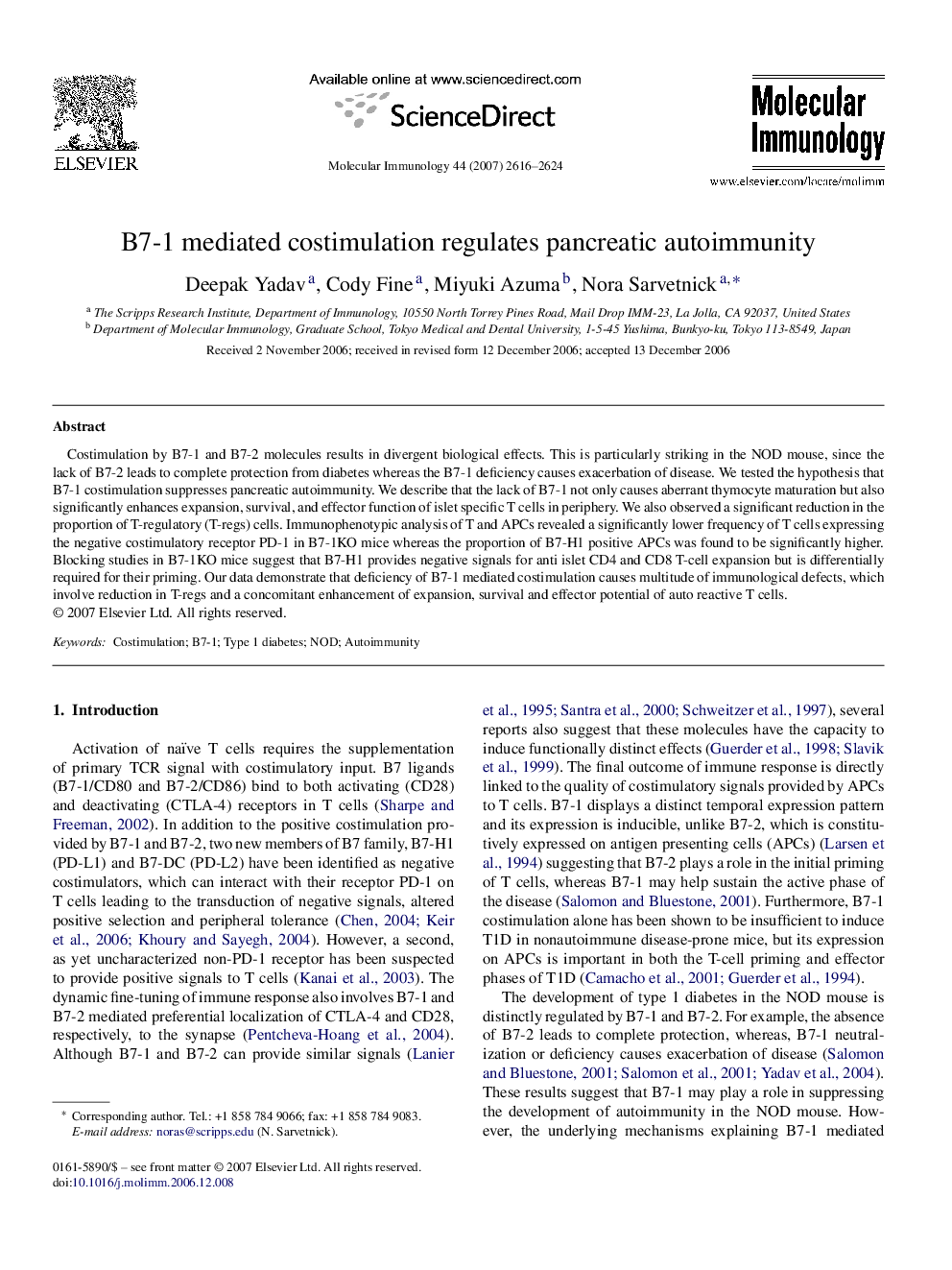| کد مقاله | کد نشریه | سال انتشار | مقاله انگلیسی | نسخه تمام متن |
|---|---|---|---|---|
| 5918160 | 1163829 | 2007 | 9 صفحه PDF | دانلود رایگان |

Costimulation by B7-1 and B7-2 molecules results in divergent biological effects. This is particularly striking in the NOD mouse, since the lack of B7-2 leads to complete protection from diabetes whereas the B7-1 deficiency causes exacerbation of disease. We tested the hypothesis that B7-1 costimulation suppresses pancreatic autoimmunity. We describe that the lack of B7-1 not only causes aberrant thymocyte maturation but also significantly enhances expansion, survival, and effector function of islet specific T cells in periphery. We also observed a significant reduction in the proportion of T-regulatory (T-regs) cells. Immunophenotypic analysis of T and APCs revealed a significantly lower frequency of T cells expressing the negative costimulatory receptor PD-1 in B7-1KO mice whereas the proportion of B7-H1 positive APCs was found to be significantly higher. Blocking studies in B7-1KO mice suggest that B7-H1 provides negative signals for anti islet CD4 and CD8 T-cell expansion but is differentially required for their priming. Our data demonstrate that deficiency of B7-1 mediated costimulation causes multitude of immunological defects, which involve reduction in T-regs and a concomitant enhancement of expansion, survival and effector potential of auto reactive T cells.
Journal: Molecular Immunology - Volume 44, Issue 10, April 2007, Pages 2616–2624